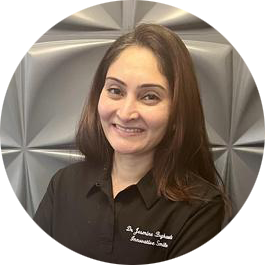Coming in for a routine teeth cleaning session serves as the foundation for continued oral health. But one of the main reasons people put it off is because they think they do not have the time. In truth, teeth cleaning is quick, comfortable, and useful. But exactly how long does a dental cleaning take?
Why Dental Cleaning Is Worth the Time
Brushing and flossing are important. No one will deny that. However, they usually are not enough to keep all buildup off your teeth. Over time, bacteria will cause buildup that eats away at your teeth. Without addressing this, it can lead to cavities. Cavities can lead to a risk of eventual infection. Infection can lead to the risk of tooth loss.
As evidence, it is a slippery slope. Each of these conditions mentioned can require lengthier treatments. For example, each cavity treatment can take at least 30 minutes on its own. A root canal can take an hour. And tooth extraction can require several days of recovery.
By attending two routine cleanings per year, you help yourself avoid any of these issues. In many cases, routine cleanings can save patients time down the road.
How Long Does a Dental Cleaning Take?
When most people think of dental cleaning, they picture what we call routine cleaning. This service handles the basic maintenance most people need. It involves removing any buildup (plaque and tartar) on the teeth.
How Long Routine Cleaning Takes
Basic routine dental cleaning takes about 30 to 60 minutes. The duration tends to depend on how much cleaning your teeth need. If you have skipped a cleaning, your next one may prove longer. However, your dentist should never rush this process. If your cleaning ends in under half an hour, you may not have received the best service.
Patients who have missed several cleanings or have gum disease may need more cleaning. This is called root scaling and planing.
Breaking Down the Cleaning Step-by-Step
Buildup Removal: This step involves physically removing buildup from the teeth. Your hygienist will use a special tool that can scrape even stubborn buildup away. You may feel some tugging on your teeth. But you should feel little to no discomfort. We then may also use an ultrasonic cleaner for enhanced cleaning.
Polishing the Teeth: This involves placing a gritty toothpaste on a rotating toothbrush-like instrument. The grit in the toothpaste helps polish away discoloration and further removes buildup.
Final Flossing: Teeth cleaning would not be complete without a quick flossing. Your hygienist will carefully floss between every tooth, cleaning out any stubborn material.
Additional Elements
In many cases, dentists perform teeth cleaning at the same time as other checkup elements. So a typical visit may also involve a physical exam, X-rays, or a fluoride treatment. If you have any of these, your visit may take closer to 1 hour in total.
- Physical Exam: Your dentist visually checks for cavities. This takes under 10 minutes.
- X-rays: About once a year, having digital X-rays provides more visualization of your teeth. This takes under 5 to 10 minutes.
- Fluoride Treatment: This quick treatment can help bolster your teeth with beneficial fluoride. It takes about 5 minutes.
How Long Scaling and Root Planing Takes
Another reason dental cleaning is worth the time is because without it you may need scaling and root planing (SRP). This in-depth cleaning removed buildup from under the gums. Think of it like a deep cleaning.
As such, it takes longer than routine cleaning. A typical SRP treatment can take between 1 and 2 hours in total. However, that does not factor in that it usually involves multiple visits. Most dentists do RSP in 2 to 4 visits. Each visit will mean more time out of your day.
How Long Do I Have to Wait After a Cleaning to Eat?
Another time factor to consider is that you may need to wait to eat after a cleaning. So if you have lunch or dinner plans right after, we recommend taking this into account. Fortunately, waiting about half an hour should prove sufficient. This only applies if you had a fluoride treatment. Otherwise, you can eat as soon as you step out of the office.
If you had numbing for an SRP treatment, you will want to wait for that to fade before eating. While numb, you could all too easily bite your tongue or cheek accidentally.
A Top Dentist for Pristinely Cleaned Teeth
Contact Innovative Smiles to work with a leading dentist for your next dental cleaning. Set the foundation for a lifetime of healthy teeth with our team of dental experts.






